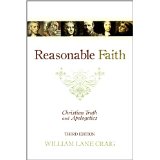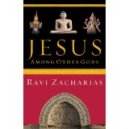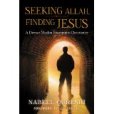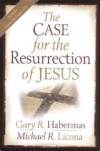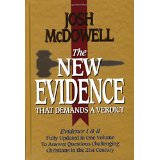Recently, Arian Foster, a running back for the Houston Texans and NFL star, exposed a secret that he had been hiding for quite some time. Foster admitted that he was an atheist. Actually in an interview with Openly Secular which can be found at https://www.youtube.com/watch?v=LrLZkwMP8kk, Foster’s belief is far more in line with agnosticism—the confession that one does not know whether God exists—rather than atheism. From the outset, it must be acknowledged that Foster was very cordial and was not aggressively opposed to a person’s belief in God. In addition, Foster was still open to the belief that God could exist. Therefore, it is completely possible that Foster could change his mind. It is with that notion in mind that I would like to present four answers to Foster’s agnosticism.
Strong Scientism
In Foster’s interview, he seems to demonstrate a form of scientism. Scientism is the belief that science holds all the answers for life’s questions. Norman Geisler describes scientism as the “belief that the scientific method is the only method for discovering truth” (Geisler 1999, 702). However, one must inquire if science can truly answer all that scientists suppose that it can.
If one is truly devoted to find the truth of what is and what may exist, one must understand the limitations of science. Geisler notes that “Even empirical scientists recognize the limitations of the scientific method…since it can only deal with observable phenomena. It begs the question in favor of materialism to assume that there is nothing beyond the observable. Other aspects of reality cannot be captured by the scientific method…Some are known intuitively (see First Principles), others inferentially (see Causality, Principle of) or transcendentally (see Transcendental Argument), and some only by special revelation (see Revelation, Special)” (Geisler 1999, 702). Before one criticizes the notion of special revelation, one must understand that science may be able to read the brainwaves of a person thinking, but scientists cannot know the thoughts of a person unless the person reveals such thoughts to the scientist—yet another limitation of science.
William Lane Craig answers Peter Atkin’s scientism by describing five areas that science cannot prove. The full video can be found at https://www.youtube.com/watch?v=BQL2YDY_LiM. Craig notes that science cannot attest to the following: “1) logical and mathematical truths cannot be attested by science. Science presupposes logic and mathematics…2) Metaphysical truths like there are other minds other than my own and that the external world is real cannot be proven by the scientific method…3) Ethical beliefs cannot be proven by the scientific method…4) Aesthetic judgments cannot be proven by the scientific method…5) Science itself cannot be proven by the scientific method…For instance the Theory of Relativity hinges upon the assumption that the state of light is constant in one direction from point A to point B” (Craig, YouTube). Therefore, Foster and other adherents to scientism should understand that their beliefs are severely limited if one’s worldview only allows observable realities limited by the scientific method as the means to their understanding.
For further references on this issue, see William Lane Craig’s book Reasonable Faith and John Lennox’s book God’s Undertaker: Has Science Buried God?
Victimized by Syncretism
Foster states in his interview that his father was a Muslim and his mother was a Catholic. Foster has read the Quran and the Bible extensively. Yet, Foster claimed that his father was a freethinker. This brings forth some questions. Did Foster’s father profess atheism while practicing Islam? Or was Foster’s father faithful and Foster remained confused? Only Mr. Foster could answer those questions. However, it does seem that Foster may be confused by the ideological and philosophical differences between various world religions. It may have been simpler for Foster to claim neutrality. Nevertheless, if Foster is truly committed to finding the truth, he must examine the historicity of Jesus of Nazareth, examine the evidence for the resurrection of Christ, and the impact of the Christian message. If Jesus is who he proclaimed to be, then everything changes.
For further information on this issue, see Ravi Zacharias’ book Jesus Among Other Gods: The Absolute Claims of the Christian Message and Nabeel Qureshi’s autobiography Seeking Allah, Finding Jesus, as well as Gary Habermas and Michael Licona’s book The Case for the Resurrection of Jesus, J. Warner Wallace’s book Cold-case Christianity, and Lee Strobel’s The Case for Christ.
Hypocritical Behavior by Christians
Another issue that seems to have plagued Foster is the unChristlike behavior by those professing to be Christians. Hypocrisy is a classic excuse used by individuals who refuse to come to Christ or who refuse to attend church. However, while Christians can never act perfectly on earth, at times Christians harm their message by becoming “super-spiritual.” Some professing Christians live as if they could never associate with those who are unbelievers or those who live lifestyles outside their acceptable boundaries. Yet, the Christian must remember that Christ associated himself with sinners. The Pharisees asked Jesus’ disciples, “Why does your teacher eat with such scum?’ When Jesus heard this, he said, ‘Healthy people don’t need a doctor—sick people do…Now go and learn the meaning of this Scripture: ‘I want you to show mercy, not offer sacrifice.’ For I have come to call not those who think they are righteous, but those who know they are sinners’” (Matthew 9:10-13, NLT).[1] The apostle Paul notes several sins to the Corinthian church. Yet, he ends by saying, “And such were some of you. But you were washed, you were sanctified, you were justified in the name of the Lord Jesus Christ and by the Spirit of our God” (1 Corinthians 6:11, ESV).[2]
What does this mean? To Mr. Foster and those who have avoided Christianity by the bad actions of those professing Christ, understand that truth is not determined by the actions of those professing truth. It could be that a person could speak the truth and act harshly and still be correct. Also, it could be that someone behaves kindly but professes a lie. The most important issue is to discover the truth.
To the Christian, this should be a reminder that people will not hear your message if your behavior does not back up your message. If you sing “Oh how I love Jesus” and behave like you should be singing “Oh how I love myself,” then do not be surprised if the skeptic does not take your claims seriously.
For further information on this issue, see Josh McDowell’s book The New Evidence that Demands a Verdict and Craig Groeschel’s book The Christian Atheist: Believing in God but Living as if He Doesn’t Exist.
One-sided Research to Search
Foster noted that he had conducted his own private research. However, he noted that he was inspired by individuals like Bill Maher, Penn and Teller, and Richard Dawkins. One must question how balanced Foster’s search for truth truly was. In Foster’s defense, he may have not known that other resources in defense of Christianity existed. It is for that reason that I have listed resources for further study in this article. A good case can be made for God’s existence. J. Warner Wallace, a former atheist and cold-case investigator for the Los Angeles Police Department and current Christian apologist writes the following,
“I identified and listed four categories of evidence for consideration: 1. Cosmological Evidence, a. Our universe had a beginning, b. Our universe appears to be fine-tuned for human life; 2. Biological Evidence, a. Life in our universe emerged from non-life, b. Biological organisms appear to be designed; 3. Mental Evidence, a. Nonmaterial consciousness emerged from unconscious matter, b. As humans, we are ‘free agents’ in our otherwise ‘cause and effect’ universe; 4. Moral Evidence, a. Transcendent, objective moral truths exist in our universe, b. Evil and injustice continue to persist, in spite of our best efforts” (Wallace 2015, 24).
Good, strong reasons exist for one to believe in God. It is not a mere knowledge of the heart. It is a knowledge of the mind as well.
For more information on this issue, see J. Warner Wallace’s book God’s Crime Scene and Robert J. Spitzer’s book New Proofs for the Existence of God: Contributions of Contemporary Physics and Philosophy.
Failure of Church to Engage in Apologetics
According to Foster’s interview and a report on ESPN, Foster had engaged Christians. However, no one could offer Foster a reason for the hope they held. No one. According to Foster, his mother was not allowed to ask questions as a Christian. No one in college could answer Foster’s objections. Instead of offering a defense for the faith that they held, many Christians would simply avoid engaging Foster on such issues. In this regard, Foster’s quest for truth hit the same kind of snag that I did. In the late 90s and early 2000s, I had asked individuals questions pertaining to the reliability to the Bible. No one could offer a defense. No one. For those of faith, we MUST remember that we are required to be ready “always being prepared to make a defense to anyone who asks you for a reason for the hope that is in you; yet do it with gentleness and respect” (1 Peter 3:15, ESV).
Conclusion
What if? What if Arian Foster had accessed Christian apologetic resources? What if Arian Foster had the opportunity to engage with Christian apologists? What if the church was prepared to answer such objections? Would Foster still remain a skeptic? Perhaps, but if Foster is open to seek the truth, then one must think that Foster may be willing to rethink the truth claims of Christianity. That is my prayer for Arian Foster. I was in the same position as Arian Foster is today. No, I did not have the notoriety and fame that Foster does. No, I do not possess the physical talent that Foster holds. However, I did hold some of the same questions that Foster has. I did have some of the annoyances towards those who professed Christ and did not live according to their beliefs. By the grace of God, I was led towards the reality that the truth was found in the Christian message. It is my prayer and hope that Foster will find the same. Instead of rebuking Foster for his doubts, I encourage others to pray that Foster will find the answers to life’s most pressing questions.
Sources Cited:
Craig, William Lane, and Peter Atkins. “What Science Cannot Prove.” Video. YouTube. Accessed August 9, 2015. https://www.youtube.com/watch?v=BQL2YDY_LiM.
Foster, Arian. “Arian Foster—Openly Secular.” Video. YouTube. Accessed August 9, 2015. https://www.youtube.com/watch?v=LrLZkwMP8kk.
Geisler, Norman L. Baker Encyclopedia of Christian Apologetics. Baker Reference Library. Grand Rapids: Baker, 1999.
Wallace, J. Warner. God’s Crime Scene: A Cold-case Detective Examines the Evidence for a Divinely Created Universe. Colorado Springs: David C. Cook, 2015.
© August 9, 2015. Brian Chilton.
[1] Scripture noted as NLT comes from the New Living Translation (Carol Stream: Tyndale, 2013.
[2] Scripture noted as ESV comes from the English Standard Version (Wheaton: Crossway, 2001).


